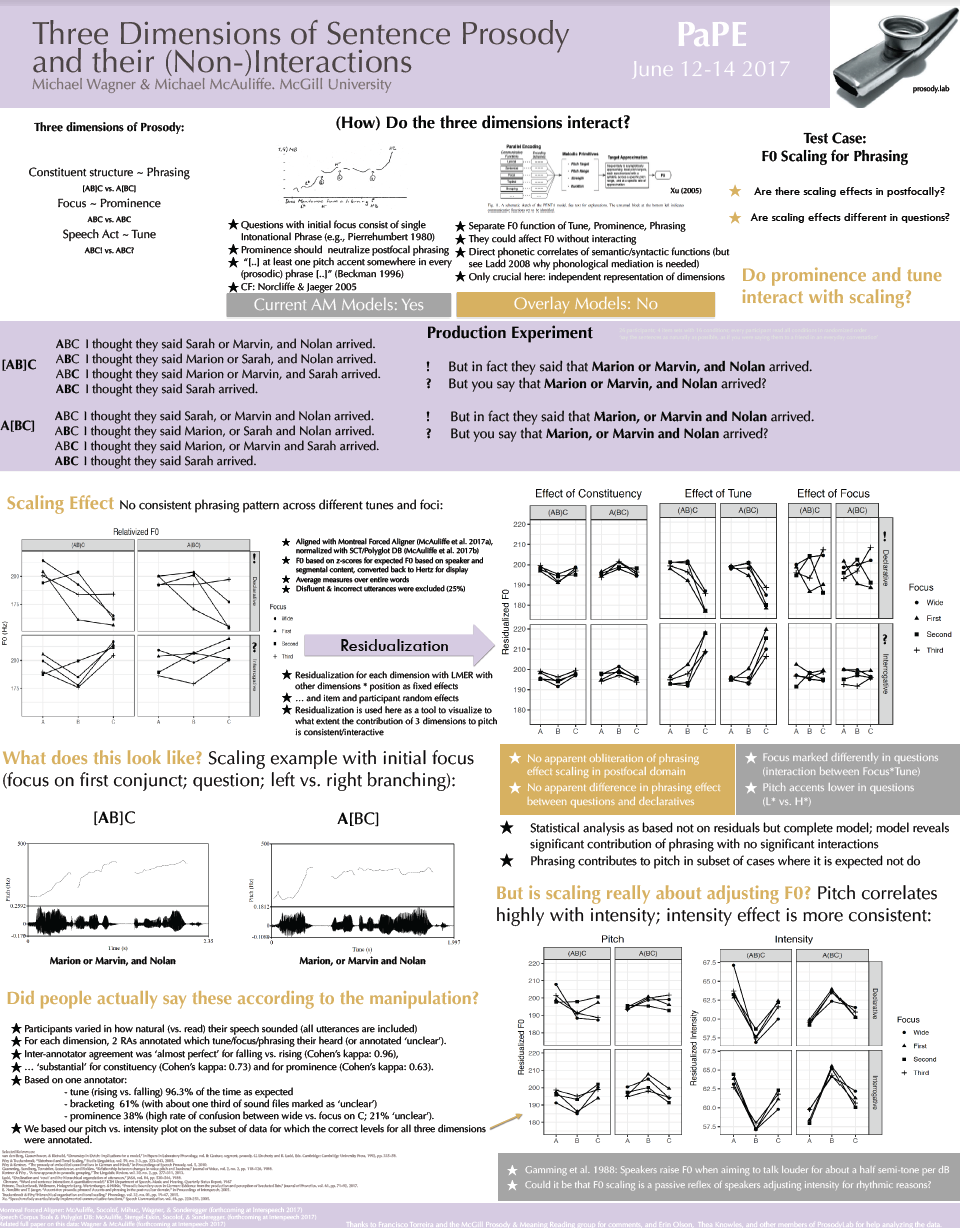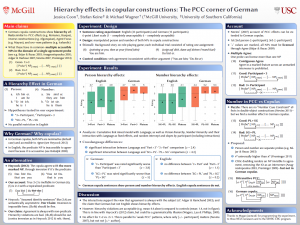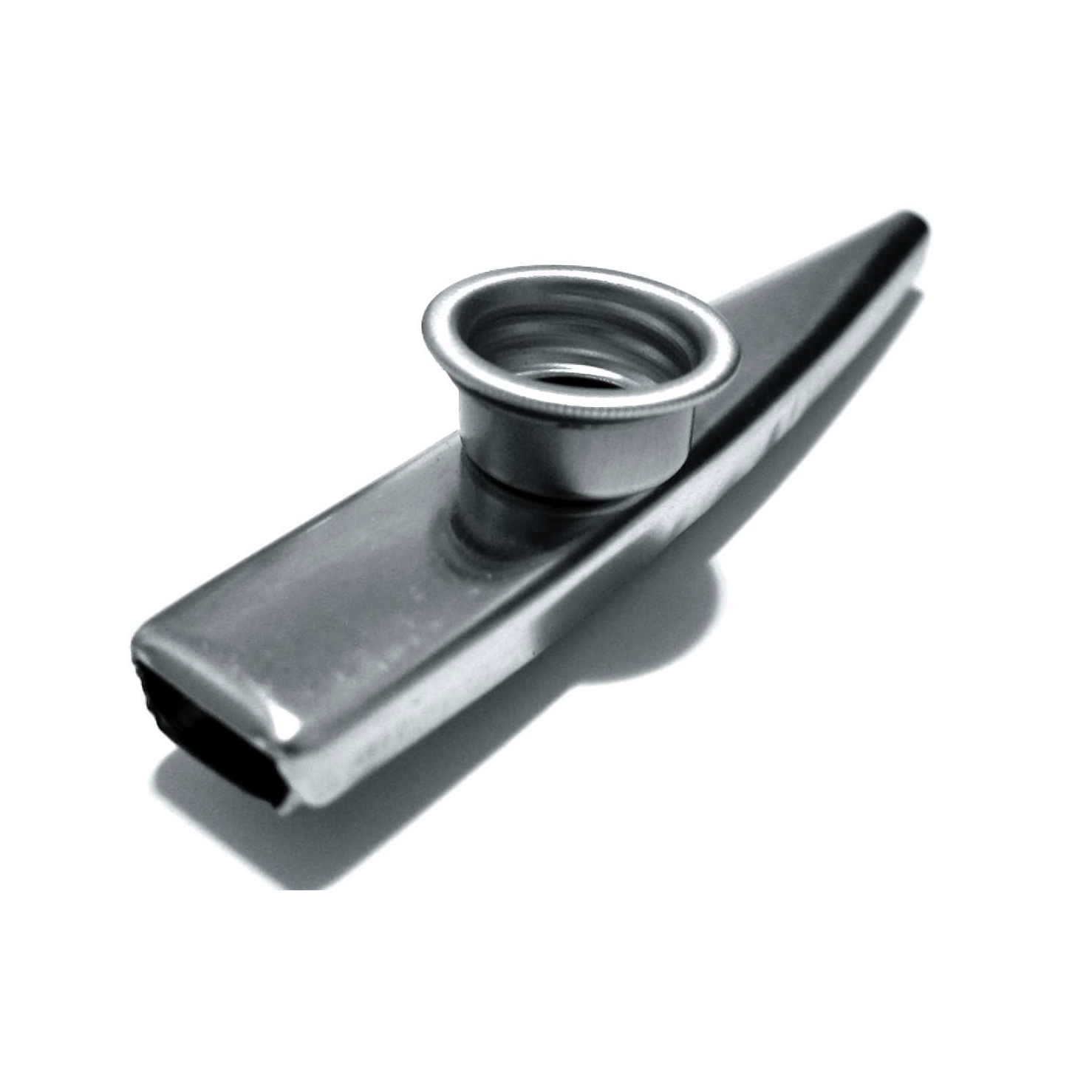15 Jun 2018
•
news
•
prosodylab
Daniel Goodhue, who defended his thesis this February, has recently accepted a postdoctoral position in the Department of Linguistics at the University of Maryland. He will be working with Dr. Valentine Hacquard and Dr. Jeffrey Lidz at the intersection of semantics and language acquisition. The position begins in August 2018.
15 Jun 2018
•
news
•
prosodylab
Vander Klok, Jozina, Heather Goad, and Michael Wagner (2018). Prosodic Focus in English vs. French: A Scope Account.Glossa: a journal of general linguistics 3(1): 71. 1-47 [DOI: http://doi.org/10.5334/gjgl.172]
Hamlaoui,Fatima, Marzena Żygis, Jonas Engelmann, and Michael Wagner (2018). Acoustic correlates of focus marking in Czech and Polish. Language and Speech, 1(20):44pp [doi]
15 Jun 2018
•
news
•
prosodylab
Smeets, Liz and Michael Wagner (2018). Reconstructing the syntax of focus operators. Semantics & Pragmatics, 11(6):1–27. [doi]
12 Apr 2018
•
news
Oriana Kilbourn-Ceron yesterday was awarded this year’s McGill Arts insight dissertation award in the social sciences for her recent thesis on Speech production planning affects variation in external sandhi.
29 Mar 2018
•
news
Dan Goodhue just filed the final version of his awsome doctoral thesis: Asking and answering biased polar questions
This dissertation explores how the interpretation of polar questions and answers to them is affected by prosody and negation. Phenomena analyzed include polar questions with polarity focus (prominence on the auxiliary), negative polar questions, yes/no responses to positive and negative polar questions, and the intonations used in such yes/no responses …
Congratulations, Dan!
14 Jul 2017
•
news
Howell, Jonathan, Rooth, Mats, & Wagner, Michael (2017). Acoustic classification of focus: On the web and in the lab. Laboratory Phonology: Journal of the Association for Laboratory Phonology, 8(1), 16. [doi]
16 Jun 2017
•
news
New paper published in Laboratory Phonology:
Tanner, James, Morgan Sonderegger and Michael Wagner (2017). Production planning and coronal stop deletion in spontaneous speech. Laboratory Phonology: Journal of the Association for Laboratory Phonology, 8(1), 15. [doi]
13 Jun 2017
•
conferences
•
prosodylab
Poster at today’s PaPE:
Wagner, M. and McAuliffe, M. (2017). Three dimensions of sentence prosody and their (non-)interactions. Poster presentation at Phonetics and Phonology in Europe 2017, Universität Köln. [poster]

15 Oct 2016
•
news
Why you can’t say this in German (or at least it won’t sound great):
Coon, Jessica, Stefan Keine, & Michael Wagner (2016): Hierarchy effects in copular constructions: ThePCC corner of German. Poster presented at NELS 47, UMass Amherst.

14 Sep 2016
•
admittedly not on prosody
A while ago, I posted on two competing meanings of ‘frown’ here. Just recently, Lynne Murphy at separated by a common language followed up on this with this post, which generated some interesting responses.
Most spectacularly, it prompted the following confirmation that British vs. American English distinction indeed has something to do with it (even though I didn’t find consistent intuitions among the (few) people from the two sides of Atlantic that I informally asked about it at the time): Josef Fruehwald observed the following amazing difference in the the respective sign languages (British vs. American) on Twitter:
http://bslsignbank.ucl.ac.uk/media/bsl-video/MI/MISERABLE.mp4
vs.
this.
The earliest reference someone posted in the comments section of the downward-facing smile reading so far dates to the 1930s–any earlier occurrences anyone?


